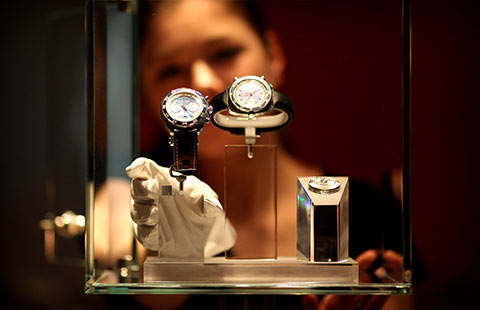Hong Kong stocks sell off on Brexit fears, again
(Agencies) Updated: 2016-07-07 08:19Hong Kong stocks fell to a one-week low, joining a global selloff spurred by renewed concern that Britain's exit from the European Union will weigh on world economic growth.
The Hang Seng Index dropped 1.2 percent at the close in Hong Kong, with London-based lender HSBC Holdings Plc among the biggest drags on the benchmark.
Bank of England chief Mark Carney warned that risks from the Brexit vote had started to crystallize, while the monetary authority took steps to spur lending by reducing capital requirements for banks. The Shanghai Composite Index rose, closing above the 3,000 level for a second day, as Kweichow Moutai Co helped push the gauge higher.
"Investors are still risk averse-they're afraid about the global economic slowdown" after Carney's comments, said Sam Chi Yung, senior strategist at South China Financial Holdings Ltd.
"There is still the expectation of an interest-rate cut in China, so the A-share performance is relatively better than Hong Kong. Hong Kong is a more open economy, so it's affected by the global market," he said.
Europe-exposed shares declined in Hong Kong, with Italian luxury-goods maker Prada SpA losing 3.7 percent and CK Hutchison Holdings Ltd retreating 0.7 percent. HSBC lost 1.2 percent, while Standard Chartered Plc fell 1.5 percent.
The Hang Seng Index dropped to 20,495.29, while the Hang Seng China Enterprises Index, a measure of Chinese companies traded in the former British colony, retreated 1.6 percent.
The Shanghai Composite Index climbed 0.4 percent at the close, sending its relative-strength index to 68.3, the highest since November.
The stocks gauge closed above 3,000 on Tuesday for the first time since April, amid speculation that the People's Bank of China will take steps to boost the economy.
The PBOC is likely to fine-tune monetary policy in the second half of the year with targeted reserve-requirement-ratio cuts or possibly across-the-board reductions, according to a commentary in the China Securities Journal.
The Shanghai Composite, the world's worst performer among 94 global indexes in the first five months of the year, is edging up the rankings due to its relative isolation from the Brexit fallout.
With a 15 percent drop in 2015, the benchmark ranks 85th, and Italian and Japanese equities are posting the biggest global declines.
- Pet e-commerce growing from dorm room
- Mobile payments market explodes in China
- Tencent opens up big data platform to boost sharing economy
- 5G heralds driverless cars
- Xinjiang Hualing in move to establish Georgia's No 3 bank
- COSCO Shipping to invest another &553m in Piraeus Port
- France woos post-Brexit UK executives
- China State Shipbuilding to build 5 luxury cruise liners with Italian partner


















